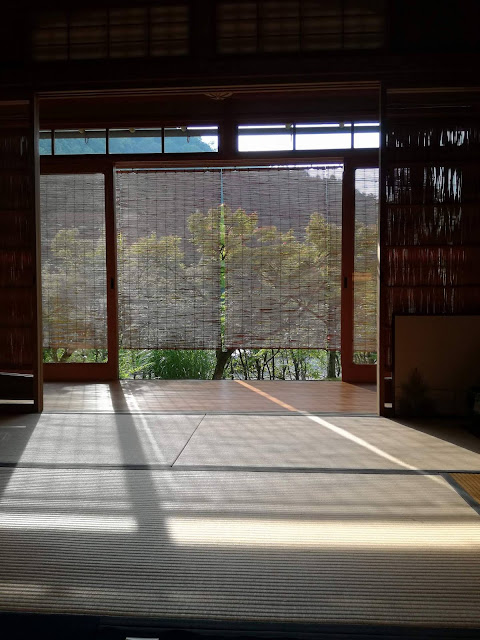The dialectic between the master and the potter
Reaching the end
This is the end of my experience.
On the 2nd of August, I went up in the mountain one last time, to Shoraku workshop. Right in front of me, Sasaki-sensei fired the pieces that I asked him to design for his family. Then I had to choose the pieces I would bring back to Paris…or somewhere else…and we made tea together, one last time, with our tea bowls still burning hot.
Why did I decide to make this trip ? Why ceramic again ? This question never left me.
Freedom of the slave
Hegel said that the master think s/he is free because the slave obeys him but that, in fact, the slave learns to act on the world itself while the master is everyday more dependent him/her. The dialectic between the master and the slave is, among other things, that the one that is at first deprived of freedom is in fact getting more freedom that the one that thinks that s/he is free.
Tea masters buy ceramics that they never make. They organize items that they never created and boast of possessions they could never conceive. Only in the early days of modern tea did Rikyu or Oribe dare to design in partnership with potters. Tea masters are, indeed, masters.
Aristotle says that a good governor is, before all a good citizen. The tea master is a political figure : s/he organize in harmony the skills of the craftsmen to create a unique space of well-being. S/he is a governor. And maybe it is better that way. After all, and contrary to Aristotle’s opinion, our society invites us to specialize more.
But in all honesty, I think that in my training as a tea person, I needed this experience : to be the craftsman, the citizen, the slave. To know how things are made, how many generations of fights against and with the matter are required to reach these results that I admire.
To belong now, without belongings
(a pretty ironic title if one could see the size of my luggages...)
I come back with the humility of having produced no extraordinary result nor thinking that I understood everything I wished to understand. But I could feel how difficult it is to enter this world and to built one’s own freedom in front of the matter. Including my first internship in Tamba, it took me more than six months in total. To feel that I now have enough empathy to look properly at a ceramic and understand the creative freedom that it exhale took me six months.
Kawai Kanjiro said that a work belongs to anyone who looks at it. Today, looking at what I bought, I think that I do not possess anything. All I can do is offer. Offer tea in a vessel I made myself.
To some tea masters, a tea bowl that one made him/herself cannot be used in a high rank tea ceremony. They say it would be egocentric.
Such an idea is beyond me : as much as I can, I want to offer what is coming from me, not what I borrow from history.
And, soon enough, these clumsy tea bowls I made with nervous hands will survive me. No one will give them any value because they only have one for myself. Yet, they already belong to everybody. They are the very first emptiness that I sculpted with my hands. I do not own this emptiness, but it is a testimony of my nascent freedom over matter — that freedom which allows me, today, to contain a little bit of tea between my palms.
Thank you Sensei,
Ô raku ni dôzô,
lets be simple





Comments
Post a Comment